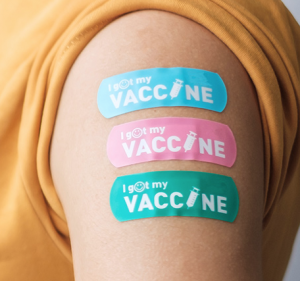UK Royal College of Physicians’ influence on vaccination policy

Hi All, I’m persisting in my quest for transparency and accountability for international vaccination policy and practice.
In this regard, I’m undertaking correspondence with the UK Royal College of Physicians, as doctors are in the front line of pushing an ever-increasing number of vaccine products and revaccinations upon the community.
Due to the dire situation in Australia, where vaccination is being mandated by governments, and politicians and the medical establishment refuse to be accountable to citizens for vaccination policy and practice, I am now pursuing this matter abroad.
FYI, please see below my recent email to Professor Chris Conlon, Chair of the Royal College of Physician’s Joint Specialty Committee on Infectious Diseases. A copy of this email is also accessible via this link, please feel free to share: https://elizabethhart.files.wordpress.com/2019/11/re-royal-college-of-physicians-influence-on-vaccination-policy-email-to-professor-chris-conlon-1.pdf
I’m openly sharing my correspondence with the RCP as vaccination policy and practice is an important matter of public interest. I will update you as I pursue this matter further. Please let me know if you do not want to be on my update list.
Kind regards
Elizabeth Hart
Independent citizen investigating conflicts of interest in vaccination policy and the over-use of vaccine products
For the attention of:
Professor Chris Conlon
Chair of the Royal College of Physician’s Joint Specialty Committee on Infectious Diseases
Dear Professor Conlon
Thank you for being agreeable to considering my questions and concerns relevant to international vaccination policy and practice, as confirmed by Dan Sumners in the email below.
Vaccination is a very important political issue in our liberal democracies, particularly with international moves towards government-mandated vaccination, and censorship of citizens’ public discussion of vaccination matters.
Despite vaccination’s reputation as a life-saver, problems are emerging with vaccine products, e.g. failing mumps and pertussis vaccines, and early waning of maternally derived antibodies in babies of measles-vaccinated mothers. Public health authorities are failing to properly acknowledge and address fundamental problems with vaccine products.
Highly questionable vaccine products such as annual influenza, meningococcal B and HPV are being imposed upon communities without independent and objective evaluation.
Doctors are using their authority to press the wide variety of vaccine products and revaccinations on the international community, but is the community safe in placing its trust in doctors? Just how much expertise do doctors have in all the vaccine products being promoted by governments and the vaccine industry, including the long-term cumulative effects of the ever-increasing vaccine load? How reliable is the journal literature backing the promotion of these products, is this data industry-biased?
Citizens’ have questions about vaccine products, including about ingredients such as aluminium adjuvants, MRC5 human diploid cells, fetal bovine serum, polysorbate 80 etc, but who is qualified to independently and transparently respond to these concerns?
More and more vaccine products and revaccinations are being imposed upon the international community without consultation and I suggest this is resulting in gross over-vaccination.
For example, in Australia, children are now being ‘recommended’ to receive over 50 doses of vaccines via single and multi-component products and revaccinations, with many of these interventions being government-mandated to access financial benefits and childcare.
Many more vaccine products are in the pipeline. The international increase in vaccine products and revaccinations appears to be driven by the vaccine industry, with the support of public health departments and doctors, and various international organisations and others.
There are serious problems with transparency and accountability for vaccination policy and practice, and conflicts of interest of various parties involved in this area, particularly vaccine manufacturers and academics involved with vaccine clinical trials.
Professor Conlon, before I raise with you queries about specific vaccine products on the schedule, it’s pertinent for me to provide you with an explanation of my interest in this area.
My involvement with investigating vaccination policy and practice was initiated via vaccination of companion animals, specifically dogs, after one of my own dogs became very ill after a routine annual revaccination and was subsequently euthanased in 2008. I was shocked to discover that over-vaccination of pets was rife and that this threatened the health of companion animals. I and other pet owners challenged the veterinary profession and government veterinary vaccine regulator about the gross over-use of vaccine products, and this matter was followed up by consumer group CHOICE in 2010, see article attached: Over-vaccinating your pet could be harmful to their health as well as costing you money unnecessarily. This article resulted in much media attention, see for example this ABC article Vets accused of over-vaccinating pets, which outlines my campaign challenging the Australian Veterinary Association about over-vaccination of pets. (Copy also attached. I’ve also attached some other relevant documents.)
The term ‘over-vaccination’, i.e. the over-use of vaccine products, is now well-known in the area of pet vaccination.
My extensive investigation of over-vaccination of pets, is now informing my investigation of over-vaccination of humans.
Contrast the burgeoning vaccination of humans with the message of international dog and cat vaccination guidelines, published by the World Small Animal Veterinary Association, which warn that we should reduce companion animal vaccination, i.e.“we should aim to reduce the ‘vaccine load’ on individual animals in order to minimize the potential for adverse reactions to vaccine products and reduce the time and financial burden on clients and veterinarians of unjustified veterinary medical procedures”.[1]
This prudent message contrasts starkly with vaccination of humans, which is increasing at a startling rate.
What is alarming is the lack of independent and objective analysis of these ever-increasing mass population vaccine medical interventions, and the unknown cumulative effects of vaccination throughout life.
International post-marketing surveillance of vaccine products is woeful, e.g. the Australian Therapeutic Goods Administration acknowledges “Adverse event reports from consumers and health professionals to the TGA are voluntary, so there is under-reporting by these groups of adverse events related to therapeutic goods in Australia. This is the same around the world.”[2] The WSAVA dog and cat vaccination guidelines are more forthright in admitting “there is gross under-reporting of vaccine-associated adverse events, because of the passive nature of reporting schemes, which impedes knowledge of the ongoing safety of these products”.[1]
In regards to over-vaccination of pets, I have undertaken much correspondence with the Australian Veterinary Association (AVA), the Australian Pesticides and Veterinary Medicines Authority (APVMA) (the regulator of pet vaccines), and also with other parties, including the World Small Animal Veterinary Association, which was behind the (industry-funded) dog and cat vaccination guidelines, and others such as the Veterinary Medicines Directorate in the UK. There’s much detail about my experience, including hyperlinks to my letters etc, on my webpage: Over-vaccination of pets – an unethical practice.
Along with my colleague Bea Mies, I had success in having the problem of over-vaccination of pets addressed in Australia, with the APVMA convening a special meeting of scientists in 2009 to discuss the detailed report I submitted. (See my report Is over-vaccination harming our pets? Are vets making our pets sick? ) Bea Mies and I met with representatives of the APVMA and AVA in Canberra in 2009. The APVMA subsequently published a position statement on dog and cat vaccination in 2010 (see copy attached), with both I and Bea Mies being invited to comment on the draft.
My essay Over-vaccination of pets, an unethical practice was instrumental in pushing the Australian Veterinary Association to review its policy on vaccination, with recommendations to reduce the frequency of vaccination and tailor vaccination to the needs of the individual animal. (See copy attached.)
As mentioned above, my research in this area resulted in the consumer group CHOICE publishing the article Over-vaccinating your pet could be harmful to their health as well as costing you money unnecessarily, and the ABC and other media covering the story, e.g. Vets accused of over-vaccinating pets.
Professor Conlon, I’m providing you with this perspective because I suggest it’s very important to compare human vaccination with companion animal vaccination, and to particularly consider the concept of ‘over-vaccination’ in regards to international vaccination schedules.
I will be in touch again soon to raise my queries and concerns about specific human vaccine products.
Kind regards
Elizabeth Hart
Independent citizen investigating conflicts of interest in vaccination policy and the over-use of vaccine products
References:
- Guidelines for the Vaccination of Dogs and Cats, compiled by the Vaccination Guidelines Group (VGG) of the World Small Animal Veterinary Association (WSAVA) (first published in 2007) Journal of Small Animal Practice. Vol. 57, January 2016.
- About the TGA Database of Adverse Event Notifications: https://www.tga.gov.au/about-daen-medicines
Dear Elizabeth
Thanks for coming back to us for clarification. That is the right address for Professor Conlon, yes, who I know is happy to talk to you. He may well want to put your questions to the committee as a whole.
Best
Dan
Dan Sumners | Head of policy and campaigns (London)
Dear Professor Goddard, further to previous correspondence, below, re transparency and accountability for the RCP’s joint specialty committee on infectious diseases.
It remains problematic that the names, qualifications and areas of infectious diseases experience of all the members of this committee are not publicly accessible.
I intend to contact the Chair of this committee, Professor Chris Conlon, as you have indicated he is comfortable with his name being shared.
This webpage contains contact details for Professor Conlon, and some brief background details: https://www.tropicalmedicine.ox.ac.uk/team/chris-conlon
My questions for Professor Conlon are relevant to both UK and international vaccination schedules/policy.
Can you please confirm it is appropriate to contact Professor Conlon via this email address? [email protected]
I look forward to your response.
Kind regards
Elizabeth Hart
Independent citizen investigating conflicts of interest in vaccination policy and the over-use of vaccine products
Dear Elizabeth
Many thanks for your response. Your opinion has been noted and will be taken into consideration as we progress with the work we outlined below.
Best
Dan
For the attention of:
Professor Andrew Goddard
President of the Royal College of Physicians
Dear Professor Goddard, you previously advised me the Royal College of Physicians “prides itself on its evidence based approach”. (Email dated 16 July 2019.)
‘Evidence’ is worthless without transparency and accountability.
In regards to the RCP’s joint specialty committee on infectious diseases, it is vital that the identity, qualifications and affiliations, and potential conflicts of interest of the Chair and members of this committee are publicly accessible.Period of membership of this committee should also be disclosed.
I understand members of this committee are influential on the RCP’s position on vaccination policy, an important matter of public interest which is also very controversial. This is increasingly so with ongoing calls for compulsory vaccination around the world, and for censoring of citizens’ free discussion of vaccination matters.
Government mandating of an ever-increasing schedule of vaccine products and revaccinations, along with moves to curtail citizens’ right to question vaccination policy and practice, are highly alarming prospects in our liberal democracies.
Citizens such as myself are demanding transparency and accountability for vaccination policy and practice, this is a very important international political issue.
I have some matters relevant to international vaccination policy to raise with the RCP’s JSC on infectious diseases. People who sit on this committee must be made aware they have an obligation to be transparent and accountable for their influence on matters affecting vaccination policy – their names, qualifications and affiliations, and any potential conflicts of interest must be publicly disclosed.
Please reconsider this matter Professor Goddard, and provide full transparency and accountability for the RCP’s joint specialty committee on infectious diseases.
I look forward to your response on this matter. This is a matter of public interest and I intend to share this correspondence with other parties.
Kind regards
Elizabeth Hart
Independent citizen investigating conflicts of interest in vaccination policy and the over-use of vaccine products
Dear Elizabeth
Professor Conlon has confirmed he is comfortable with his name being shared. We are also exploring publishing the full list of committee chairs on our website, as we used to do in printed form.
We do not propose publishing lists of all committee members. We will, however, provide an email address so if people have queries about a committee they can contact us and we can liaise with the respective committee about publishing more information.
We feel this is a reasonable compromise between providing information in the public interest and making sure our committees are able to carry out their work. The RCP as an organisation is, of course, happy to be scrutinised and provide the public with information where appropriate.
Kind regards
Dan
Dear Elizabeth
Sorry for the slow reply. We agree with the need for transparency on how we reach our evidence based conclusions so thank you for coming back to us. I am going to speak to some colleagues then will come back to you.
Best
Dan
For the attention of:
Professor Andrew Goddard
President of the Royal College of Physicians
Dear Professor Goddard
In response to my request to publicly share your response relevant to the Royal College of Physicians’ influence on vaccination policy, Dan Summers has requested I remove the last paragraph of your email identifying the Chair of the RCP’s joint specialty committee (JSC) on infectious diseases.
This is a problem Professor Goddard.
As the RCP is influencing vaccination policy there must be full transparency and accountability.
The membership of the RCP’s JSC on infectious diseases should be publicly identified, not just the Chair, but all members, so that their qualifications for this role can be examined and they can be held accountable for their influence on vaccination policy.
Can you please reconsider this matter Professor Goddard, and provide full transparency for the RCP’s JSC on infectious diseases, including any potential conflicts of interest of members of this committee.
I look forward to your response on this matter.
Please note my email will be circulated to other interested parties for information, this is a matter of public interest.
Kind regards
Elizabeth Hart
Independent citizen investigating conflicts of interest in vaccination policy and the over-use of vaccine products










